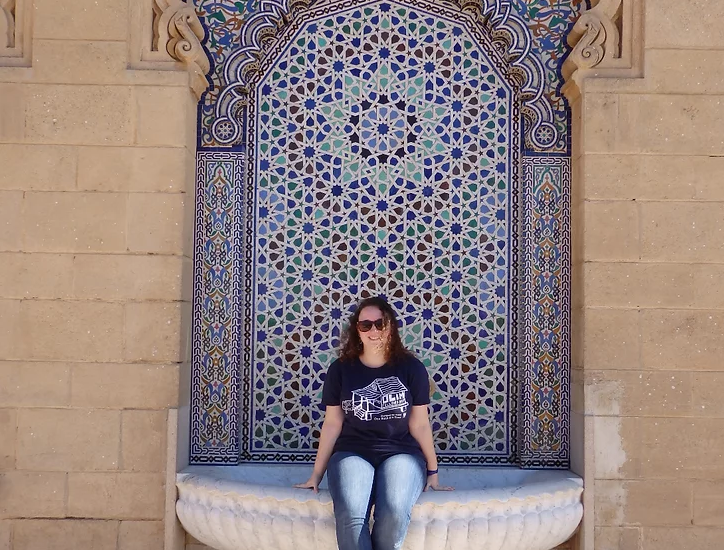by Leah Michalove | SIT Morocco, Fall 2014
Originally written on March 14, 2016
-
When did you start to consider studying abroad?
I knew I wanted to study abroad since I was fourteen or fifteen – the availability of financial aid for study abroad was one of the factors I considered when applying to college originally. For me, it was only a question of where and for how long.
-
How did you choose where to study abroad?
As an Arabic student in the spring and then fall of 2014, I only had one option if I wanted to use my language skills: Morocco or Morocco. So I went to Morocco.
-
What was unique about the SIT Morocco program?
SIT is exceptional in its emphasis on experiential learning. My semester abroad was really focused on experiencing Morocco and Moroccan culture in an organic way. We’d have marathon Arabic classes and lectures by major Moroccan academics, but the bulk of my learning really took place in my homestay, on our field trips around the country, and during my time spent doing my own field research. That’s another cool part of the SIT program – you have the chance to do a really self-directed project while in-country.

-
Tell us about the research you conducted while studying abroad and how you used it upon your return to Emory.
Sure, so I looked at fashion and identity politics in Morocco, essentially examining the ways in which Moroccan young people conceptualize of modernity, style, authenticity, and Moroccan-ess through fashion and clothing choices. I conducted interviews and participant-observation, looked at art and magazines, and did a lot of shopping, and then brought that data back to form the basis of my honors thesis.
-
The SIT Morocco program has an aspect called “Directed Study.” What is it and how did it affect your experience?
Yeah, so the SIT programs included an aspect called the Independent Study Project, for which I conducted my research. You work on the project all semester, doing background reading and research, and then the final month of the semester is spent exclusively on the ISP. For those four weeks, I was basically an independent researcher, setting up interviews, taking notes, traveling around the country – it was a wonderful taste of what being a qualitative researcher would be like, and I got to see the country on my own terms.
-
How did your study abroad experience influence the rest of your time at Emory?
My semester abroad was a great supplement to my studies at Emory. I was able to observe and participate in things I could only read about from Emory. As a Middle Eastern Studies major, spending time in the Middle East and North Africa was an invaluable aspect of my education.

-
How do you think your application to the Rhodes Scholarship was colored by your studies abroad?
My study abroad experience in many ways affirmed my desire to study anthropology and to spend more time in the field. That desire, as well as the highs and lows of research, formed important sections of my application. Plus, living abroad for that semester opened me up to new possibilities and fed my wanderlust. So two years in the UK sounded not only possible but like a great new adventure.
-
What are your goals for this next chapter of your academic career?
I’ll head to Oxford in September and I’ve applied for a one-year Master’s degree in Social Anthropology, which I hope to follow-up with a Masters in Refugee and Forced Migration Studies. And after that? I’m thinking about a Ph.D. in Anthropology.
-
What advice do you have for Emory students considering study abroad?
GO! Seriously, just do it – pick a city, a country, a language, and/or a program, and go! I’m a big advocate for studying abroad in a developing country, but even if you’re thinking about Western Europe, it’s absolutely worth it. Emory’s financial aid carries, and lots of departments on campus have extra funds to help students study abroad. Plan ahead, get your requirements sorted out, meet with a CIPA advisor, and buy a plane ticket. Emory’s an amazing place, but when you study abroad the whole world is your classroom. You’ll grow as a student and as a person- I know I did.
